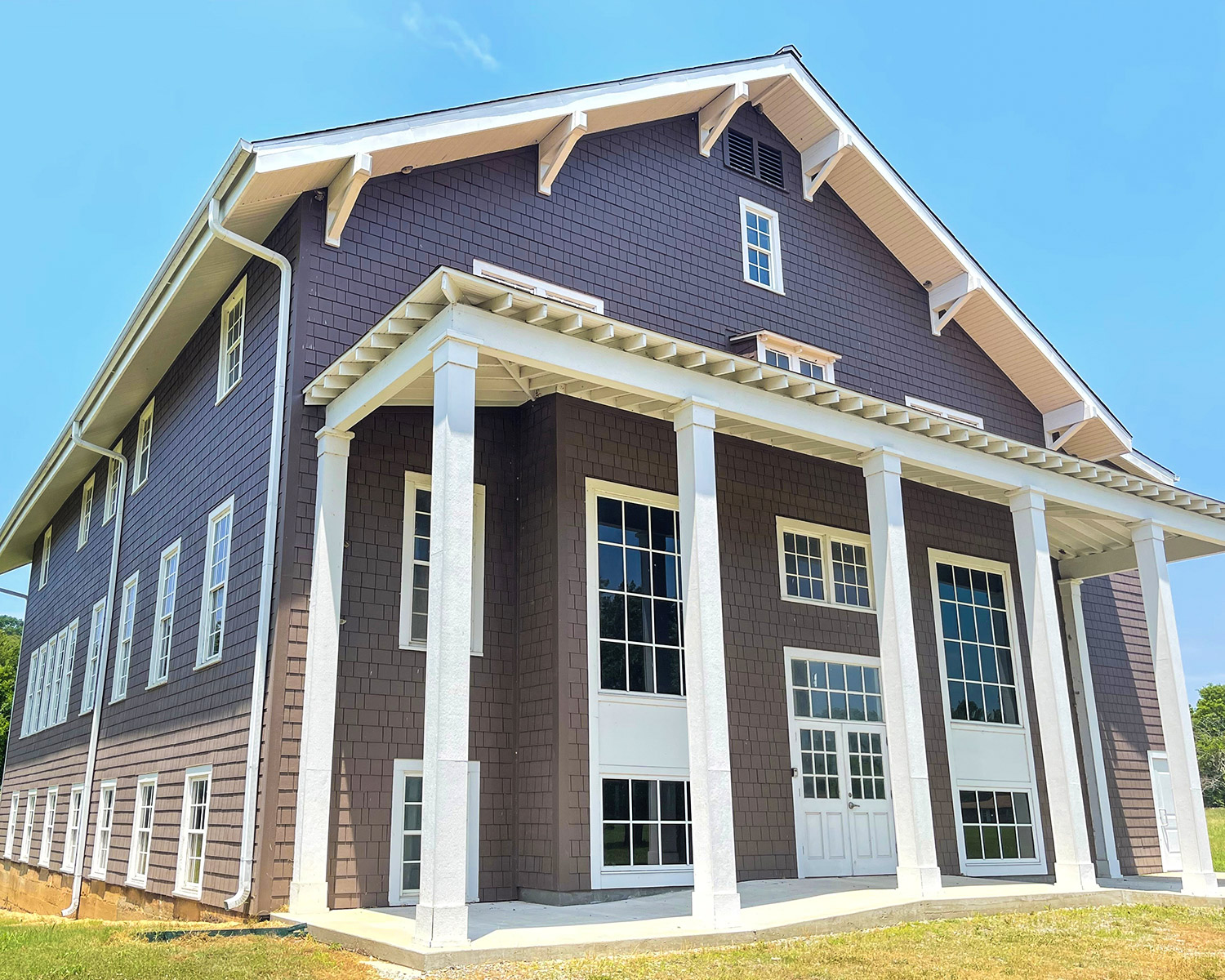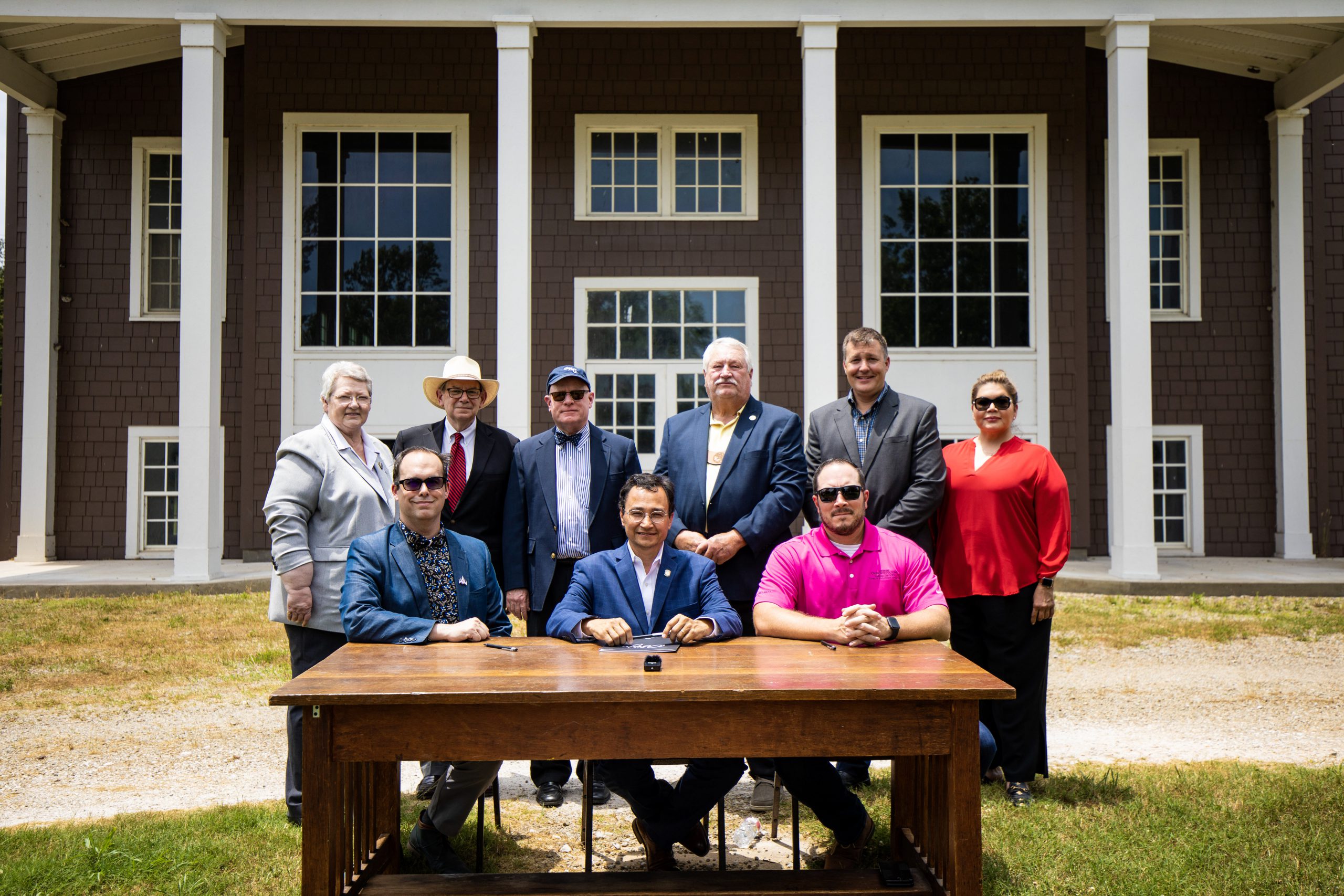Indianz.Com > News > Chuck Hoskin: Cherokee Nation acquires boarding school site

Dwight Mission purchase will preserve our rich Cherokee history
Wednesday, June 30, 2021
Cherokee Nation
In the hills of Sequoyah County, in the heart of the Cherokee Nation reservation, sits the iconic Dwight Mission campus. For almost 120 years, Dwight Mission served as a Cherokee boarding school. It’s only fitting that the tribe is now assuming ownership of this hallowed location with profound historical significance for Cherokees.
The Dwight Mission campus includes the historic school building as well as several dormitories and single-family dwellings set along Sallisaw Creek, near Marble City. Cherokee Nation recently acquired the original 86-acre parcel from the Dwight Presbyterian Mission Inc., along with an additional 120 acres the mission acquired over the years. It can serve a wide array of functions, including as a potential Camp Cherokee site and a retreat location.
When Dwight Mission was originally built in Indian Territory, it was one of the first schools for Native children. Cherokees have always valued the education and spiritual health of our children, and Dwight Mission was an important part of that.

Chuck Hoskin Jr. is the 18th elected Principal Chief of the Cherokee Nation, the largest Indian tribe in the United States. He is only the second elected Principal Chief of the Cherokee Nation from Vinita, the first being Thomas Buffington, who served from 1899-1903. Prior to being elected Principal Chief, Hoskin served as the tribe’s Secretary of State. He also formerly served as a member of the Council of the Cherokee Nation, representing District 11 for six years.
Search
Filed Under
Tags
More Headlines
Native America Calling: New art exhibitions offer creative interpretations of Native survival and endurance
AUDIO: Legislative Hearing to receive testimony on S.2098, S.1055 & S.699
VIDEO: Legislative Hearing to receive testimony on S.2098, S.1055 & S.699
Native America Calling: Can caribou slow the drive for oil and mineral development in Alaska?
Cronkite News: Judge questions targeting of Democratic lawmaker
Testimony: Leanndra Ross of Southcentral Foundation
Testimony: Dayna Seymour of Colville Tribes
Testimony: Darrell LaRoche of Indian Health Service
Senate Committee on Indian Affairs hosts hearing for tribal health bills
Native America Calling: College Native American Studies programs map their next steps
AUDIO: Making Federal Economic Development Programs Work in Indian Country
Gaylord News: Immigration agents sweep into Indian Country
Witness List: Making Federal Economic Development Programs Work in Indian Country
Hearing Memo: Making Federal Economic Development Programs Work in Indian Country
Hearing Notice: Making Federal Economic Development Programs Work in Indian Country
More Headlines
AUDIO: Legislative Hearing to receive testimony on S.2098, S.1055 & S.699
VIDEO: Legislative Hearing to receive testimony on S.2098, S.1055 & S.699
Native America Calling: Can caribou slow the drive for oil and mineral development in Alaska?
Cronkite News: Judge questions targeting of Democratic lawmaker
Testimony: Leanndra Ross of Southcentral Foundation
Testimony: Dayna Seymour of Colville Tribes
Testimony: Darrell LaRoche of Indian Health Service
Senate Committee on Indian Affairs hosts hearing for tribal health bills
Native America Calling: College Native American Studies programs map their next steps
AUDIO: Making Federal Economic Development Programs Work in Indian Country
Gaylord News: Immigration agents sweep into Indian Country
Witness List: Making Federal Economic Development Programs Work in Indian Country
Hearing Memo: Making Federal Economic Development Programs Work in Indian Country
Hearing Notice: Making Federal Economic Development Programs Work in Indian Country
More Headlines